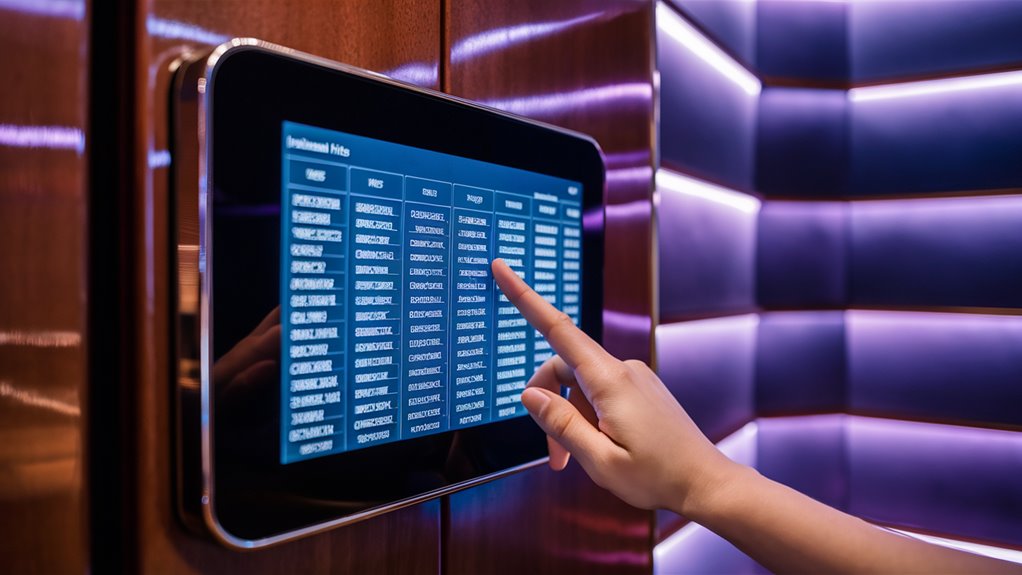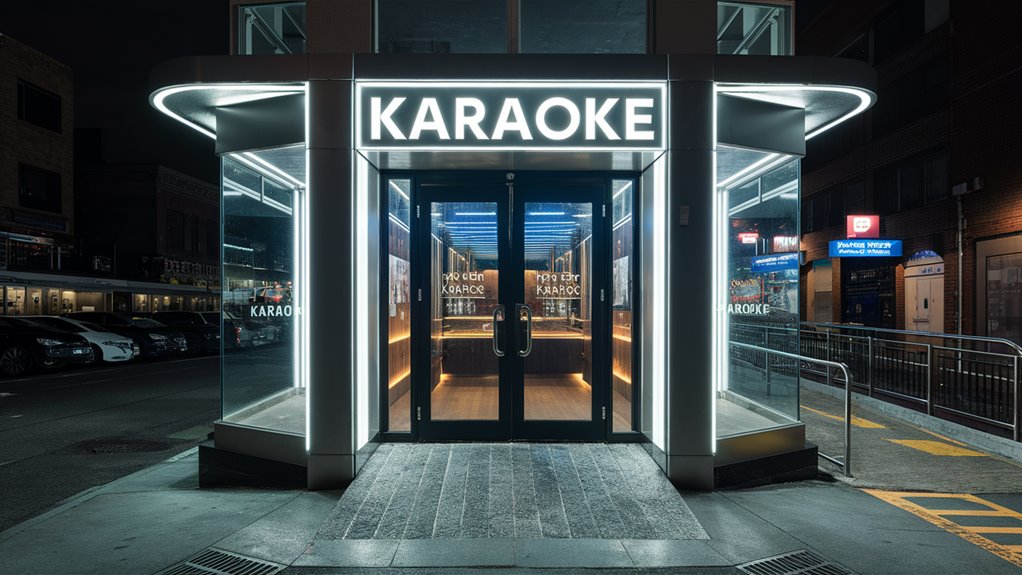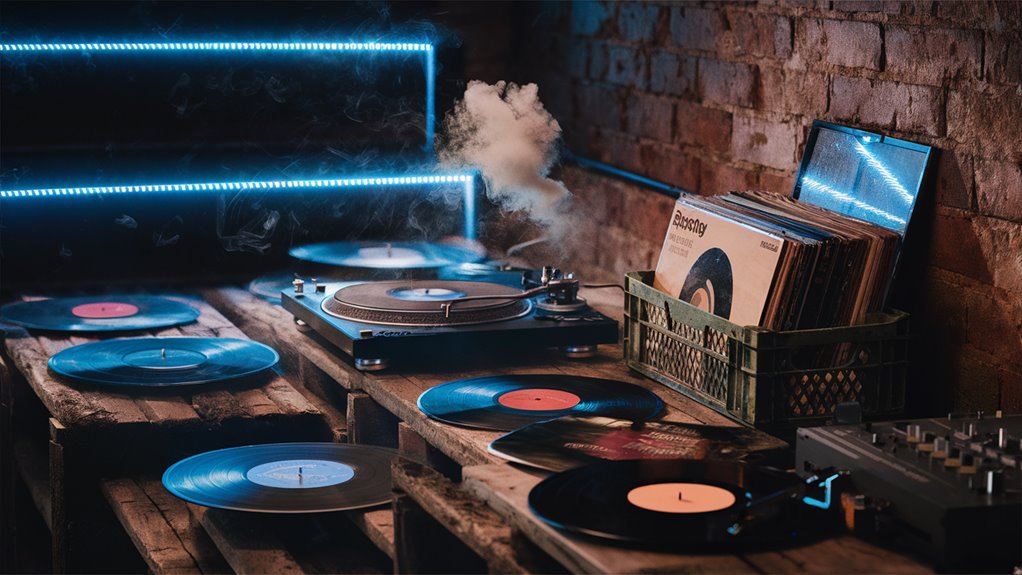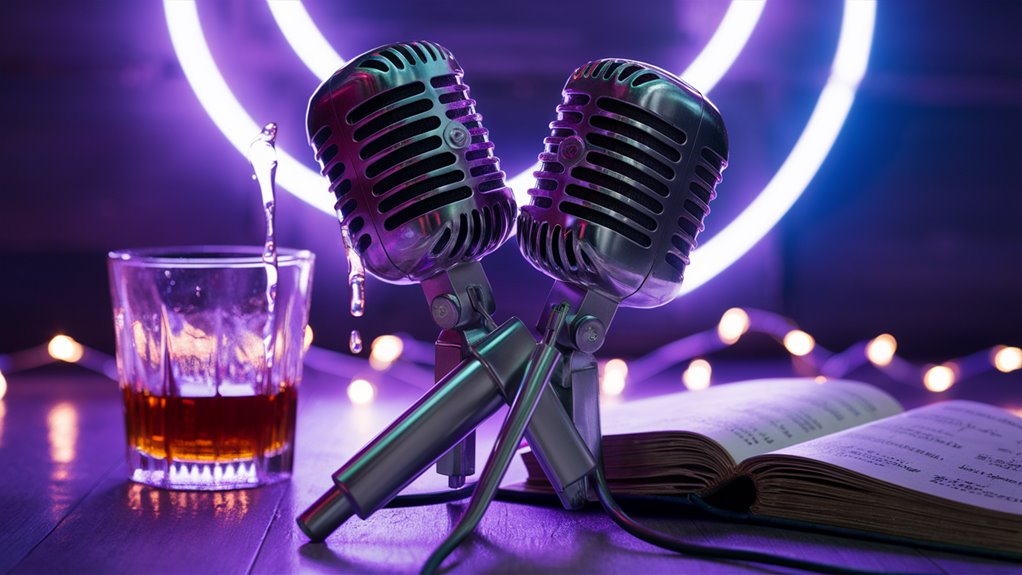Top Tips to Pick the Best Karaoke Room for Your Team

Room Size and People Fit
Choosing the right karaoke room size is key to make sure your group is happy and has fun. Aim for 10-15 square feet per person so there’s plenty of space to move, sit, and sing. If your group is big, look for spots with large rooms that have good air flow and temperature control.
Best Sound Gear Must-Haves
Good sound gear can make or break your karaoke fun. Look for places with pro mics from well-known brands like Shure and Sennheiser. The audio system should have clear screens, good acoustics, and strong sound control for top singing.
Song Choices and List Quality
Make sure the place has a large song list with at least 20,000 tracks. The list should have:
- New hits regularly
- Songs in many languages
- Various music styles
- High-quality music
- Simple song search
Location and Access
Pick a karaoke spot with:
- Easy parking
- Outdoor lights
- Near buses and trains
- Easy-to-follow signs and paths
- Strong safety measures
Prices and Extras
Check out the spot’s full price list, which includes:
- Minimum booking time
- Higher rates during busy times
- Team discounts
- Requirements for food and drink purchases
- Additional fees
- Freebies like water or snacks
Consider spots that offer cool features like touch screens for song choices, personal waiter service, and excellent soundproofing between rooms.
Choosing the Ideal Karaoke Room Size
Space Needed for Great Karaoke
A good karaoke room needs 10-15 square feet per person for comfort and enjoyment.
For the right space:
- Smaller teams (4-6 people): At least 100 square feet
- Larger teams (6-8): 150-175 square feet
- Big teams (8-12): Over 200 square feet
Room Layouts and Seating

Great Seating Arrangements
- U-shaped seating: Suits 6-8, great for chatting
- Theater-style seating: Works for larger groups, all can see well
- Room to stand: Needed for dancing
- Good table placement: Handy for drinks and small items
Room Preparation
Important Points
- Dance space: Ensure at least 4×4 feet is free
- Walking lanes: Maintain 3 feet clear between seats and walls
- Equipment space: Plan where the TV/screen and speakers will go
- Personal item space: Set aside a spot for your things and snacks
Comfort and Atmosphere
- Good ventilation: Larger rooms need better air flow
- Air conditioning: Bigger rooms should have effective cooling
- Sound absorption: Proper room size enhances sound quality
Always verify room size and maximum capacity with the venue’s team before booking.
Excellent karaoke spots give clear details on how many can fit and what the rooms offer to help you make the right choice more see
Sound Gear Quality Check
How to Assess Karaoke Room Sound Gear
Essential Sound Gear
Professional sound gear is essential for a great karaoke experience.
Before you book, inspect the sound equipment, especially from trusted brands like Shure, Sennheiser, and Audio-Technica. These brands are noted for excellent sound, crucial for singing.
Microphone Testing
Test sound quality by starting with the mics. Check each for:
- Clear sound
- No strange noises or buzz
- How to Add Extra Fun to Your
- Consistent sound quality
- Even sound levels
Ensure the venue has enough mics for your group, with at least two for smaller teams and more for larger ones.
Speaker Examination
High-quality speakers should provide:
- Uniform sound throughout the room
- Clear sound at all volume levels
- No fluctuating sounds
- Reliable sound across all tones
Handling Controls and Maintenance
The karaoke system controls require:
- Fast responding controls
- Simple song selection
- Quick sound adjustments
- Immediate sound checks


